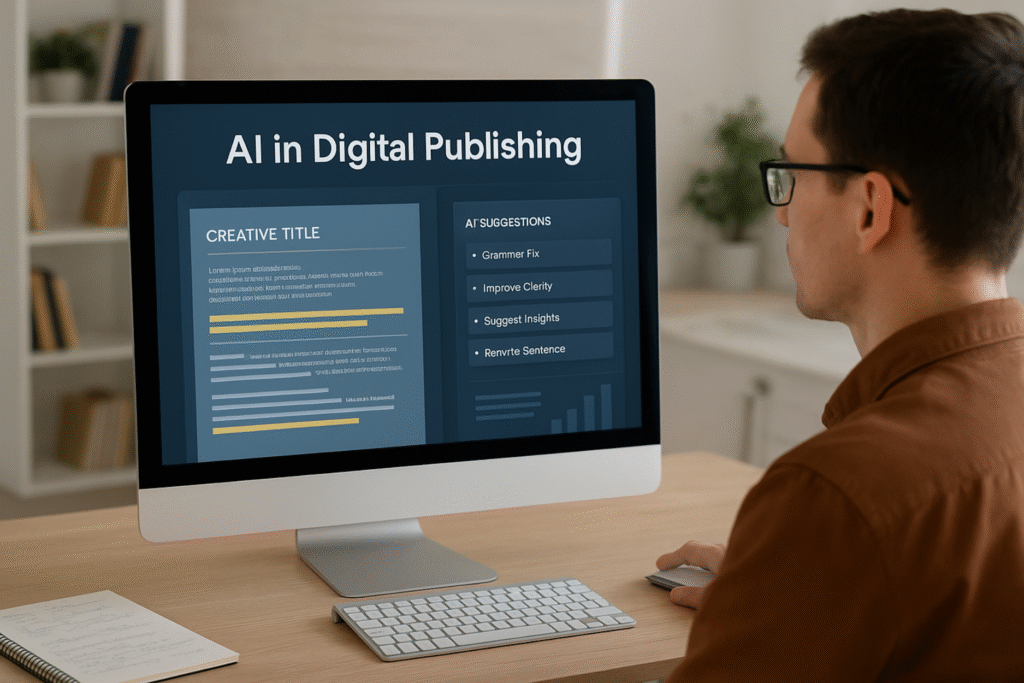
A publisher reviewing AI-generated suggestions on a screen, with eBook layouts and analytics in view.
Artificial Intelligence in digital publishing is no longer a futuristic idea — it’s already transforming how content is written, distributed, and consumed. From editing tools to personalized eBooks, AI in Digital Publishing is rewriting the rules of storytelling and business alike.
Smarter Writing and Editing
AI-powered tools now support authors and editors at every stage of the creative process. Beyond basic grammar correction, they can improve clarity, enhance tone, and even recommend entire plotlines. For publishers, this means faster turnaround times, fewer errors, and consistently high-quality releases. What once took months can now be completed in weeks — without compromising creativity.
Personalized Reader Experience
One of the most exciting innovations is how AI customizes reading. Platforms can analyze a reader’s habits and preferences to deliver tailored recommendations, generate instant summaries, or even offer voice-assisted narration. This personalization ensures readers stay engaged while helping publishers understand exactly what their audiences want.
Industry Impact
Efficiency: Faster book production cycles save time and resources.
Reach: Real-time translations allow stories to travel across borders instantly.
Insights: Predictive analytics reveal reader trends before they peak.
The result is a more connected ecosystem where writers reach new markets, publishers stay ahead of demand, and readers enjoy experiences designed just for them. As we discussed in our Living Libraries blog, the future of knowledge is interactive and adaptive — and AI in publishing is a core driver of this shift
Conclusion: The Future is Intelligent
With AI in Digital Publishing, books are no longer static. They’re dynamic, adaptive, and alive with possibilities. Authors gain smarter tools, publishers achieve faster growth, and readers experience stories in richer, more personalized ways. The publishing industry isn’t just evolving — it’s entering an intelligent new era.
